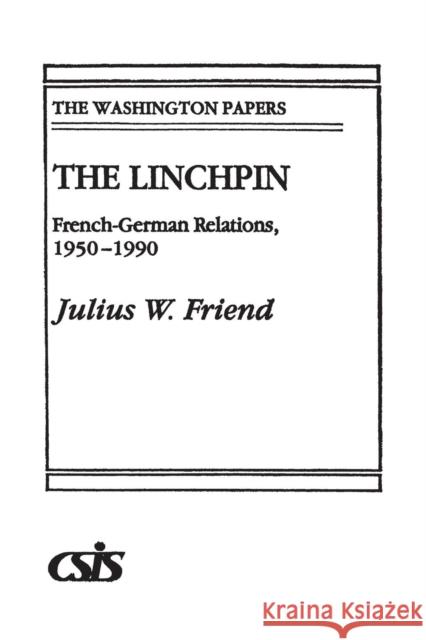The Linchpin: French-German Relations, 1950-1990 » książka
The Linchpin: French-German Relations, 1950-1990
ISBN-13: 9780275942564 / Angielski / Miękka / 1991 / 160 str.
The Linchpin: French-German Relations, 1950-1990
ISBN-13: 9780275942564 / Angielski / Miękka / 1991 / 160 str.
(netto: 131,71 VAT: 5%)
Najniższa cena z 30 dni: 132,35
ok. 30 dni roboczych.
Darmowa dostawa!
The rapprochment between France and the Federal Republic of Germany five years after the end of World War II was the cornerstone of all subsequent Western European history. Their previous hostility was a basis for arms races and wars--their friendship, the foundation for continually widening European economic and now political community. The unexpected reunification of Germany in 1990 sent shock waves through the French political class. Julius W. Friend explains the present French-German relationship, first investigating the recent past, then laying out the problems of the present and foreseeable future.Each chapter follows the history of the French-German relationship in the postwar period, covering the DeGaulle-Adenauer collaboration, the economic power of West Germany and its policy toward the East (and their effects on France), socialist governments in both countries, and French reactions toward the events of late 1989 in East Germany--and the initial reticence of the French to accept German reunification. The book concludes with the widely posed question of whether France is the big loser in regard to the recent events in Germany. Are France and Germany together still the linchpin of a stable Europe and the European Community? Do the countries still need each other? Friend's volume attempts to answer these and other intriguing questions, suggesting a European agenda for the next decade. The Linchpin is essential reading for political scientists, European studies scholars and students, and others examining the dynamics of a crucial inter-country relationship in the new Europe.











